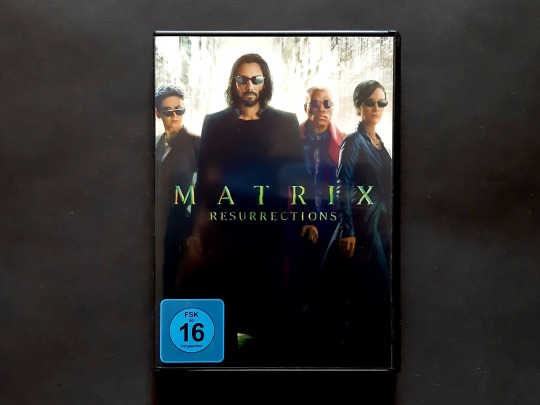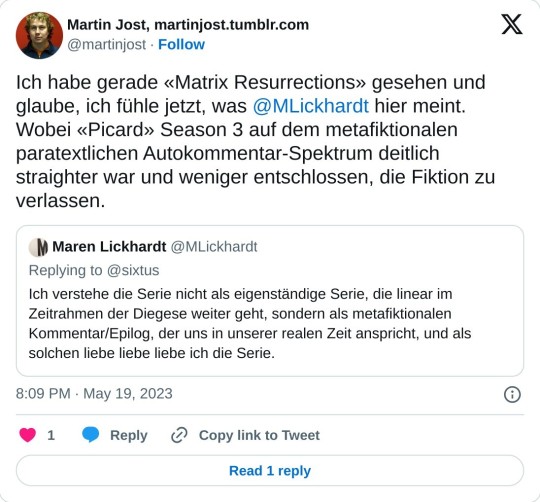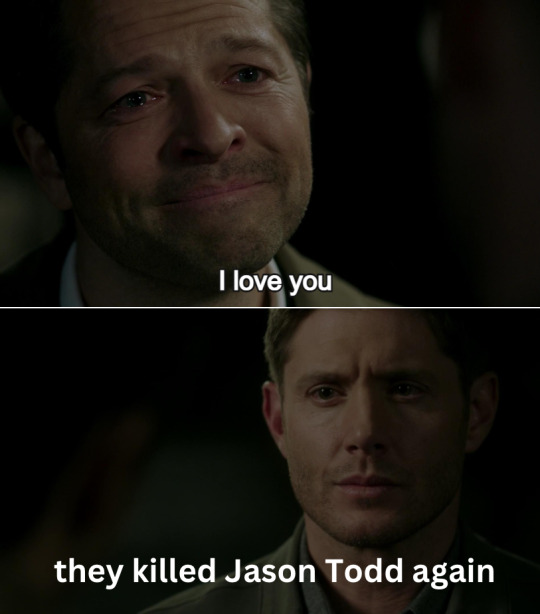#resurrections
Explore tagged Tumblr posts
Text

No one, not even a fluffy bird, could say truthfully that today was a lovely day in the wild west Highlands of Scotland. Even at noon it was dark, because dense Scotch mist was blocking out most of the light; the wind was blowing, the rain was raining, and – especially if one was already wet as a result of these phenomena – it felt unpleasaantly cold, although in reality the temperature was nothing like as low as it was around the homes of many of Algy's friends in the northern hemisphere. But it's one thing to be cold and dry, especially in calm weather, and quite another to be cold and wet in a constantly buffeting wind…
However, as Algy perched damply in a hypericum bush, rocking resolutely to and fro in the wind and the rain, he suddenly noticed with glee that there were brand new bright green leaves coming out all around him, on stems which only a week or so ago had been almost completely bare. Despite the unpleasant conditions, he was truly delighted to see them, but as he grew damper and damper and colder and colder, he couldn't help reflecting that it was a pity that the weather in this part of the world so rarely permitted comfortable appreciation of the joys of the early spring, for:
In spring a bluster busting up against a wall will lift last year’s leaves higher than trees did.
[Algy is thinking of the short poem Resurrections by the 20th century American poet A. R. Ammons.]
#Algy#photographer on tumblr#writers on tumblr#Scotland#GIF#Scottish Highlands#wind#original gif#Scottish weather#poem#poetry#resurrections#a r ammons#fluffy bird#fluffy#spring is coming#early spring#new leaves#spring green#uncomfortable#hypericum#st john's wort#cold and damp#bad weather#the joys of spring#original character#original content#adventures of algy#jenny chapman
62 notes
·
View notes
Text
can Lena Raine please compose the soundtrack to my life
#celeste game#lena raine#pigstep#celeste farewell#creator#confronting myself#reach for the summit#resurrections#joy of remembrance#i love music#i crave it#thank you lena raine#you've composed such good music#i wanna hug you#thank you for existing#and continuing to exist
10 notes
·
View notes
Text

#happybirthday @ActuallyNPH #neilpatrickharris #actor #DoogieHowserMD #howimetyourmother #ASeriesofUnfortunateEvents #gonegirl #starshiptroopers #DoctorWho #TheUnbearableWeightofMassiveTalent #TheMatrix #Resurrections #FIsforFamily #8BitChristmas #ItsaSin #Downsizing #TheSmurfs
#happybirthday#neil patrick harris#actor#doogie howser md#how i met your mother#a series of unfortunate events#gone girl#starship troopers#doctor who#the unbearable weight of massive talent#the matrix#resurrections#f is for family#8bitchristmas#its a sin#downsizing#the smurfs
15 notes
·
View notes
Text
On the State of "The Matrix"
[translation of:]
We weren't entirely sure if this new "Matrix" film really existed or if we had dreamed it. It came to theaters during the peculiar dream-like time called The Pandemic and is, of course, available on home video by now. In the public consciousness, it hasn't left as significant an impact as the "Matrix" trilogy from 1999 onwards. The original film is 24 years old. Back then, it felt like it had propelled us more than a quarter of a century into the future, but today, Part One seems more like an artifact of its time. So, what about this latest sequel? Is it from the present, is it nostalgic, or does it give us a glimpse of the future?

There's a structural difference between the latest installment of "The Matrix" from 2021 and the old trilogy (1999 – 2003) that feels subtle but sets the mood of the film: In the fourth "Matrix" film, "Resurrections," unexpected allies keep appearing, where previously surprising saboteurs provided tension. In "The Matrix," Cypher (Joe Pantoliano) betrays Morpheus (Laurence Fishburne) and his crew to the enemy machines at the most inconvenient moment. In "Resurrections," there's a ceasefire, and some machines have joined the humans. It may happen that an intelligent machine appears at the right moment to help humans out of a dangerous situation.
If self-irony were sugar, we'd have heartburn now.
The color scheme subtly contributes to the feeling that we're in a more optimistic Matrix. Warm light and sunset ambiance replace the previously dominant gray, pallid clouds, and pale faces glowing from computer screens. "The Matrix Resurrections" is in every way more joyful, optimistic, and confident than its predecessors – one might even say it's almost silly. If self-irony were sugar, we'd have heartburn now.
At the beginning of the film, Neo (Keanu Reeves) is back where he was at the beginning of the first part: working as a programmer. His experiences as a freedom fighter against the machines in the real world were mere delusions, he believes. He processed them into a successful video game series called "The Matrix Trilogy." The plot initially follows the same path as the first part, but this time with meta-commentary and fan jubilation from the sidelines. It's a younger generation led by Captain Bugs (Jessica Henwick) who seeks Neo in the real world and frees him from the Matrix. To them, Neo is legendary.

And for us, he is too. The film is a class reunion for Millennials. We'd like to know if someone who has only seen "Resurrections" and no other "Matrix" film can make sense of the fourth installment. The dialogue consists almost entirely of inside jokes. The rest is made up of quotes. Often, we can even directly compare the scenes, as fragments from the original films are constantly present – either as flashbacks or as films within the film. When the characters watch excerpts from the previous parts, the sequences in diegesis are taken from Neo's blockbuster video game, which they've all binged.
Déjà vu
This time too, Neo needs two attempts before swallowing the red pill and deciding to escape from the virtual reality. The meeting with Morpheus (Yahya Abdul-Mateen II) takes place in an old cinema. On the torn screen, the same scene from the first "Matrix" is shown, in which the old Morpheus (Laurence Fishburne) lets Neo choose between the red pill and the blue pill. Did we say above that the echoes of the past were subtle? Scratch 'subtle.' By the way, the soundtrack is also very familiar to us, having watched "Matrix" 1 to 3 more than once.
Neil Patrick Harris (Barney from "How I Met Your Mother") plays Neo's psychotherapist. Later, we discover that he is responsible for much more than gaslighting Neo. The analyst's glasses glow blue, just like the pills he prescribes to his patient for his "hallucinations." He has a black cat named Déjà vu. Did we say above that the echoes of the past were subtle? Scratch 'subtle.'
Trinity (Carrie-Anne Moss) is called Tiffany in this version of the Matrix. She is a mother and wife and spends her remaining time on her hobby: motorcycles. She has also played the "Matrix" trilogy computer gane and felt oddly familiar with the story. The character Trinity in the video game looked remarkably similar to her as well.
Neo's Eleven
The second half of "Resurrections" falls into the genre of a heist movie. Like in "Ocean's Eleven," the free people from the city I/O and the crew of the Mnemosyne plan a heist. They don't want to rob a bank but rather free Trinity from a high-security tower. However, she must first want to break free from the Matrix herself.
We can be pleased that the dialogues about the theory of the Matrix are as concise and pointed as in the first part, even though we miss Hugo Weaving as Smith and Laurence Fishburne as Morpheus. The new "Architect" of the Matrix understands human nature even better than his predecessors. In a monologue, he explains how to more efficiently harness human bodies for energy generation: one must engage their minds with emotions, contradiction, and anger, then the yields increase year after year. This moment corresponds to a scene in the first part where Smith explains to Morpheus that enslaved humans would rebel against a paradisiacal golden cage and only function correctly when their lives are a gloomy struggle.
In both the latest and the first part, the irony lies in the fact that the machines understand and exploit human nature excellently for their purposes. The machines' view of humanity has been adapted to themes like fake news, attention as currency, and political trench warfare. The question of whether AI (artificial intelligence) will take over the world has become even more acute since 1999. Despite all the nostalgia, "Matrix: Resurrections" has caught up thematically and is a film of today. [translated with ChatGPT.]
youtube
"The Matrix Resurrections"
USA, Germany 2021
⭐⭐⭐☆☆
Director: Lana Wachowski. Screenplay: Lana Wachowski, Aleksandar Hemon, David Mitchell. Production: Lana Wachowski, Grant Hill, James McTeigue. Music: Johnny Klimek, Tom Tykwer. Cinematography: John Toll, Daniele Massaccesi. Editing: Joseph Jett Sally.
Starring: Keanu Reeves, Carrie-Anne Moss, Yahya Abdul-Mateen II, Jessica Henwick, Jonathan Groff, Neil Patrick Harris, Priyanka Chopra, Jada Pinkett Smith, Lambert Wilson, Christina Ricci, Toby Onwumere, Max Riemelt, Brian J. Smith, Eréndira Ibarra, Telma Hopkins, Chad Stahelski, Julian Grey, Andrew Lewis Caldwell, Ellen Hollman, Freema Agyeman.
#Besprechung#Film#Filmkritik#Matrix#matrix trilogy#Resurrections#Review#The Matrix#01060#international martin tribune#review#translation#ai#artificial intelligence#film review#movie review#criticism#Youtube
4 notes
·
View notes
Text
Warner Bros.' $125 Million Arbitration Win Over ‘Matrix Resurrections’
When it filed for chapter earlier this 12 months, Village Roadshow pointed to the souring of its longtime partnership with Warner Bros. for its monetary woes. On the coronary heart of the falling out that was years within the making: A authorized battle over the studio’s resolution to launch Matrix Resurrections concurrently on HBO Max and in theaters, consuming away at field workplace…
0 notes
Text


continuing with the reposts of my old art in this new blog 🤡 this one was for uhhh. zuko's hot moisturized glowing umbothered girl summer.
#tumblr emailed me back tonite its not looking good lads T-T#they said they cant resurrect meeeee#wailing foreveerrr#so uhh#lets drown our sorrows in zuko slutwear#which im p sure was the literal wording of the ask that had prompted this art in the first place dkgjdk#zukka#atla#my art#id in alt text
11K notes
·
View notes
Text



The idea of a Sonic and DC crossover comic is so silly to me. I love it lol
Reminds me of all those old cameos back in 90’s and 2000’s cartoons. Back when Ben Tennyson showing up in Generator Rex blew my mind.
Anyways. It’s fun to get to draw super cartoony and semi realistic at the same time!
#sonic the hedgehog#sth#the flash#dc comics#dc x sonic#superman#batman#shadow the hedgehog#knuckles the echidna#resurrecting my love of the justice league cartoon lol
13K notes
·
View notes
Text

(look at what i have to offer) — this is the spider's nest.
#wild life smp#grian#<- is that really... his tag...?#grian fanart#life series smp#wanted to also make him wear skizz's tie specifically bec i hc he cant tie it properly himself so its always lopsided#perhaps later on he then wraps it around his fist#anyway this was A LOT . simpler in my head. never again will i draw rails#eydidraws#my art#trafficblr#mcyt#self indulgent drawing for me . maybe ill post the original sillier sketches later :'D#also kinda failed but i wanted to give the illusion of 8 legs so shadow-arm-sleeve-coat (left) / shadow-arm-shadow-coat (right)#* extra edit for clarification: yes my wl! grian is wearing mumbo's jacket (all the rips) and skizz's tie (unharmed since he fell) :D#maybe when they resurrect next time ill draw them without it lmao
22K notes
·
View notes
Text
Lena Raine - Resurrections
1 note
·
View note
Text
Shout out to Characters who are shells of their former selves! You died and you’re not coming back! You don’t recognize yourself and neither does anyone else, and it’s anyone’s guess what the fuck you’re supposed to be now!
#jayce talis#jinx arcane#viktor arcane#jonathan sims#helen distortion#micheal distortion#carpenter tsv#paige duplass#faulkner tsv#oc ben#oc archer#dalinar kholin#shallan davar#sometimes you all know exactly when some character stopped being what they were before and sometimes it’s real fucking slow#sometimes it happened long before the story even started#sometimes you even get a resurrection#sometimes the other characters don’t even realize they’re dead#this actually happened to me irl it was weird as hell but I think I’m having a comeback
10K notes
·
View notes
Text


monster high
#combining my fav parts of g1 g2 and g3 into my ideal monster high#i call it 'monster high resurrected'#monster high#my art#frankie stein#draculaura#clawdeen wolf#lagoona blue#fanart#clawdeens design is very g1. but her STORY is very g3 inspired#youll see youll see#monster high resurrected
18K notes
·
View notes
Text








Hello cult of the lamb followers and mutuals I have starved for about . A year
#my art#cult of the lamb#cotl#Narinder#Lamb#the last lil doodles was a random what if nari forgot who he was when he resurrected at the cult post lamb taking over the crown#and I wanted to doodle it#anyways#leshy#Talyn
4K notes
·
View notes
Text


1 note
·
View note
Text

#happybirthday #keanureeves #actor #thematrix #reloaded #revolutions #resurrections #sonic3 #pointbreak #speed #dracula #billandted #bogusjourney #facethemusic #constantine #johnwick #parebellum #sweetnovember #hardball #replicas #knockknock #47ronin #TheDaytheEarthStoodStill
#happybirthday#keanu reeves#actor#the matrix#reloaded#revolutions#resurrections#sonic 3#point break#speed#dracula#bill and ted#bogusjourney#face the music#constantine#john wick#parebellum#sweet november#hardball#replicas#knockknock#47 ronin#the day the earth stood still
8 notes
·
View notes
Text

dc fans how we feeling
edit: IT WAS FAKE ANOTHER LEAK IS OUT IM SO SORRY GUYS
FINAL UPDATE (hopefully): he DID die but because of a ‘Lazarus Fluid’ was brought back to life real quick (as in by the end of the issue)
#dc comics#tuesday spoilers#jason todd#batman#bat family#personally im excited as all get out#i think we’re due for a decent amount of overhaul to characters#also his fans are annoying#im intrigued to see where this goes#cause even alfred hasn’t been resurrected yet
15K notes
·
View notes